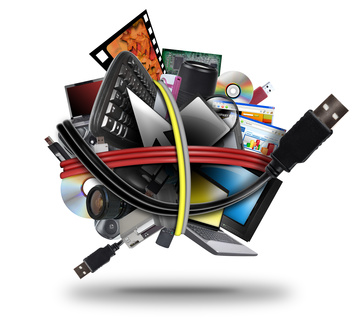The average consumer, no matter how excited about the gadgets, will still have initial apprehensions about buying them. Retail items offer an abundant lot of choices that could easily confuse, confound or even intimidate the clueless consumer when confronted with issues like tech jargon, what’s the best buy, or what brands to choose.
However, there will always be the most basic ones that consumers would usually ask and these are the questions they ask themselves rather than other people. Although expert opinion from geeks, techies and well-meaning friends do help to guide you most of the time — the ultimate decision maker will still be you. How well you answer your self-directed questions then determine how well you could go about making the right buying decision. Below are some of the pre-purchase making questions you ought to ask yourself.
What features do I need?
If you are looking to buy a mobile phone and you know that what you need are just the basic features (that it is capable of making and receiving calls, playing music, an alarm and a calendar), then go for one that has these without the other enticing features. Smartphones are now equipped with, such as wifi, touch screens, video and digital cameras. If you don’t think you need such advanced features then you will be wasting your money buying something you have no real and practical use for.
Have I read enough reviews on the gadget?
Avoid purchasing gadgets on impulse. Get more value for your money by reading reviews on the gadget you have in mind. If you are purchasing a high-end gadget that you have been saving up for, make sure you are up to date on the newest models. If the next one promises more for the features you are looking for, such as a higher resolution or a faster processor, then maybe you should wait for that one to be released — but be prepared to pay a higher price because new arrivals usually cost much more.
If it breaks down, where can I go to get it fixed?
If gadgets break down, malfunctions, have factory defects, or have performance issues, you should know where to get them fixed or replaced. Warranty periods enable you to do this. It also pays to make sure that the gadget model hasn’t been phased out and discontinued. You might get these gadgets for a cheaper price, but once they break down, there may no longer be spare parts available for discontinued or phased out models. If the parts that have to be replaced are only available in other countries and needs to be ordered, this could be a problem. Purchase gadgets that have service centers nearby.
Have you had a hands-on experience with the product?
Seeing a tech product online is different from actually getting your hands on it. Nothing beats trying a product out before buying one so you could experience for yourself how it feels to use one. Tech gadgets are more about the user experience rather than consumers truly knowing about features and functionalities. The latter are what consumers get to know more about along the way after the purchase.
Will it be practical for your personality and lifestyle?
Purchasing business productivity-related equipment for a small business used to be simple. It used to be a choice between a personal computer and a laptop. The choice has now been narrowed down between going desktop or going mobile device. Nevertheless, all of these devices are equipped with features to well meet your business needs.
If your work requires you to constantly travel then mobile devices like smartphones, tablets and phablets could serve you better. PCs and laptops on the other hand are more suitable for offices and schools. Be practical with your choices always.
Questions To Ask Yourself Before Buying Gadgets







